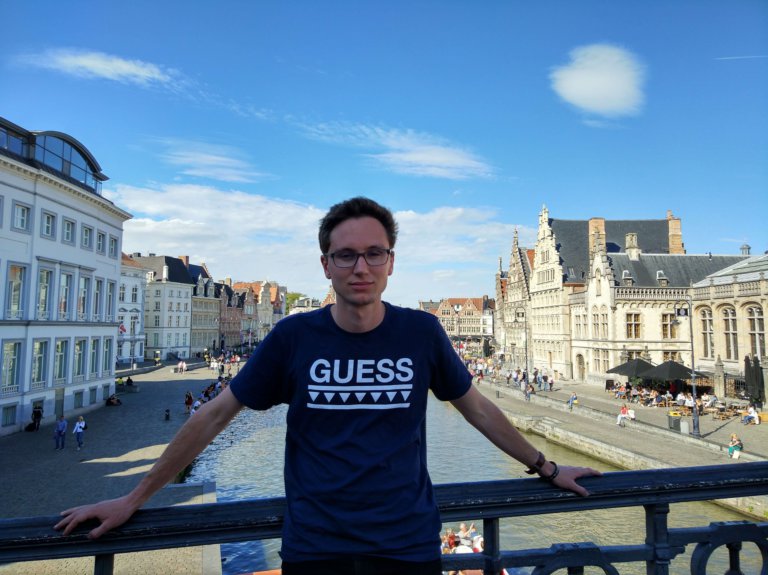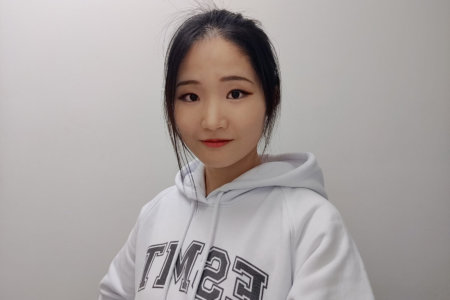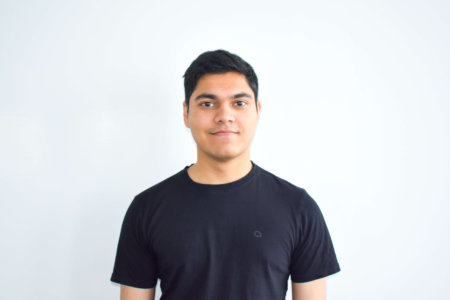
While Leon Van Der Vyver was studying for his bachelor’s degree at Stellenbosch University in South Africa, he also ran his own small startup from the university’s business incubator. Today, the multi-tasker is studying for a Masters in Innovation and Entrepreneurship at Vlerick Business School in Belgium. This is not the South African’s first stint overseas. He has studied in Amsterdam and attended an Innovation Management summer school in San Francisco.
To Van Der Vyer, studying abroad let him learn more about the hospitality and travel industry, as well as to better understand property finance and development from a global perspective. Below we speak to him about why he chose to pursue his entrepreneurial dreams in a Belgian university:
What made you choose to study abroad in Belgium, in particular for a Master in Innovation and Entrepreneurship?
I see the building of a business as one of the most challenging, yet interesting things to do in life. The whole process of coming up with an idea, validating it, and executing it successfully fascinates me.

Van Der Vyver is fascinated by the process of business-building . Source: Leon Van Der Vyver
I studied abroad because I wanted to further my knowledge of this process. While researching master’s degrees, I limited my search to degrees with a strong practical focus on launching your own company which led me to my Masters in Innovation and Entrepreneurship at Vlerick Business School.
Why did you choose to pursue a Masters in Innovation and Entrepreneurship at Vlerick Business School? Why did you choose Belgium?
Vlerick Business School is considered the top business school in the Benelux countries. The structure of the programme is a combination of academic study and an incubation programme. We have the opportunity to develop a business idea as part of our Startup Accelerator course. We also partake in topic-specific bootcamps, and if COVID-19 allows, we should be able to travel to Silicon Valley at the end of the academic year. In addition, this school also has an Entrepreneurship Fund to support young entrepreneurs in developing their businesses. Another further consideration is Vlerick’s proximity to startup hubs like Amsterdam, Paris, Berlin, and London.

Building a business is a challenge, but one this student is willing to take. Source: Leon Van Der Vyver
Do you think it would have made a difference if you studied at a local institution?
I believe studying abroad opens a world of opportunities you won’t necessarily find while studying in your home country. Especially in business, our thinking and sources of creativity are largely shaped by the society we find ourselves in. Studying abroad expands this mental box as your most valuable business education might just be the innovation you spot in a different country! Europe also offers a wealth of opportunity to startups through accelerators, venture capital funds and government support.
What has been your most memorable class so far?
As part of the Startup Accelerator course, we are going through the entire business model construction process. This includes coming up with an idea, validating it through extensive customer interviews and developing a business model and pitch. We have also been partnered with a mentor and a wealth of business experience.
Do you have any fond memories with teachers at your university that stood out for you?
I really enjoyed our Corporate Finance class. Although I studied the subject before, I found the approach refreshing as it focused strongly on recent events. The world of finance has seen its fair share of scandals, and as such, a moment that stood out to me was when our professor ended the course by urging us to always conduct ourselves in an ethical manner. Our lecturers have also been very approachable via email, and are trying to make the best out of the online format.
Do you get to apply the theories you gained in lecture halls and classrooms to the real world?
Yes, definitely. During the initial months of my programme, we had the chance to mingle outside the classroom, do customer interviews for courses such as Entrepreneurship, and meet with alumni and the school’s network. However, due to the second wave of COVID-19 cases in Belgium, we have had to transfer to an online format, at least until the end of the calendar year. During this time, it has been more difficult to have much interaction apart from Zoom calls. However, one advantage is that it is easier to reach out to entrepreneurs and mentors abroad due to the acceptance of video calls as the new norm.
What are your academic goals for your Masters in Innovation and Entrepreneurship?
My goal for the course is to develop a startup within the framework and guidance of an academic programme. Some of the most important skills thus far have been the value of in-depth customer reviews. It’s tempting to think that you understand a problem, but before validating it by asking the right questions, you are likely to be off track. Another skill was the interpersonal skills developed through teamwork when we could still interact on campus.
What do you plan to do after graduating?

Leon Van Der Vyver is enjoying life in Belgium and is excited with what the future has in stall for him in the business industry. Source: Leon Van Der Vyver
After studying abroad for my master’s degree, I hope to remain in Europe and either continue with the business idea we are developing as part of the Startup Accelerator course, or work for a startup, venture builder, or venture capital fund. Entrepreneurship and Innovation is a fascinating study field and can take you in many different directions.
What is one thing from home you miss, and how do you substitute it?
As an international student studying abroad, you certainly make sacrifices in pursuit of your goals. You are leaving your friends, family, and way of life behind. In your country of birth, you have an almost subconscious understanding of how things work. You understand the humour, government processes and cultural etiquette. In a foreign country, you need to learn all of these things again, which can sometimes take years. I have been to Belgium before starting my master’s degree this year so I had a bit of an idea of what to expect.
However, the weather in Belgium, especially during winter, takes some time getting used to! Christmas has a much different feel to it and I hope to experience some snow! Probably what I miss the most are my two dogs: Tinkie and Moekie, whom I hope to visit during the holidays.
Any advice for international students studying abroad?
I would carefully consider all the different aspects of a course to see how it matches with past experiences and goals. If you are an international student, make sure to research the visa options available to you after graduation, as some countries are more lenient towards foreign students post-graduation. This can make a massive difference to your future plans. I would also strongly recommend reaching out to alumni of the programme you intend to study. They will be able to give you an in-depth and honest insight into the course.
When applying to different universities, make sure to carefully match the application and acceptance timelines. Studying abroad can be fun, but another important thing to factor is that some universities require reference letters, so be sure to secure these as soon as possible.










